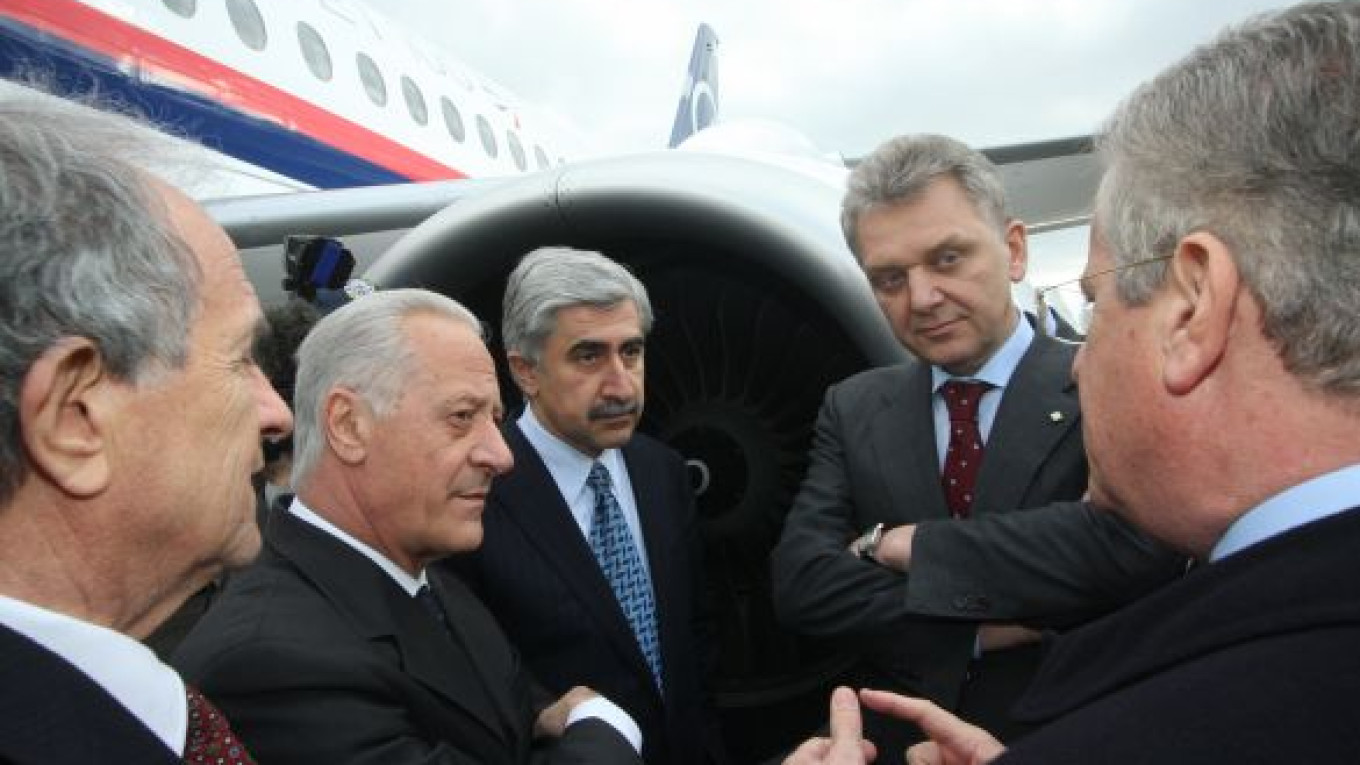Sukhoi Civil Aircraft announced Tuesday that it would delay the first delivery of its Superjet 100 to Aeroflot, in the latest in a string of postponements.
Sukhoi won’t be able to deliver the jets by the end of this year as had been expected, Sukhoi head Mikhail Pogosyan told a news conference. He did not specify when the aircraft would be completed.
Earlier this month, Aeroflot head Vitaly Savelyev said the company expected to get its first delivery of Superjet aircraft by the end of the year. The company was supposed to receive one new jet per month starting in December, for a total of 30 aircraft.
Industry sources said that a delay in certification was holding up the first unit’s delivery, Interfax reported. Pogosyan said at the annual MAKS Aviation Salon in August that certification would be finished this year.
Alexei Fyodorov, head of the United Aircraft Corporation, Sukhoi’s parent company, warned in August that there might be problems making the 2009 deadline and that the first jets may not be delivered before 2010.
Aeroflot ordered 30 Superjets at the discounted price of $21 million, which was later increased to $22.4 million because of additional equipment expenses. The airline has an option to buy an additional 15 jets.
Aeroflot, which hopes to replace its old Tu-134 jets with Superjets, has said it will not seek fines for Sukhoi, Vedomosti reported in October.
In return, Sukhoi Civil Aircraft provided a temporary cancel of customs fees for the jets imported by the carrier.
Armenian airline Armavia, which previously expected a 2009 delivery, said last month that it was now expecting its first jet in April.
Armavia head Mikhail Bagdasarov said the delivery of new jets would be delayed till April because of certification problems. He added that Armavia would benefit from the delay, as the passenger flow was lower in the winter months.
Sukhoi currently has orders for 122 Superjets.
The aircraft made its maiden flight, initially planned for 2007, in May 2008 and its first public flight in June this year. It is still undergoing tests.
The industry has high hopes for the medium-range Superjet, which Sukhoi hopes will snap up 20 percent of the world’s regional jet market.
In international markets, the Superjet will compete with Brazilian aircraft maker Embraer and Canada’s Bombardier, which currently dominate the sector.
The Superjet, the country’s first passenger airline in nearly 20 years, was developed with Italy’s Finmeccanica and can carry from 75 to 95 passengers.
A Message from The Moscow Times:
Dear readers,
We are facing unprecedented challenges. Russia's Prosecutor General's Office has designated The Moscow Times as an "undesirable" organization, criminalizing our work and putting our staff at risk of prosecution. This follows our earlier unjust labeling as a "foreign agent."
These actions are direct attempts to silence independent journalism in Russia. The authorities claim our work "discredits the decisions of the Russian leadership." We see things differently: we strive to provide accurate, unbiased reporting on Russia.
We, the journalists of The Moscow Times, refuse to be silenced. But to continue our work, we need your help.
Your support, no matter how small, makes a world of difference. If you can, please support us monthly starting from just $2. It's quick to set up, and every contribution makes a significant impact.
By supporting The Moscow Times, you're defending open, independent journalism in the face of repression. Thank you for standing with us.
Remind me later.


